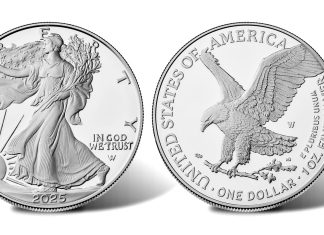 Well, it at first appeared that Beijing would "lend" support to the "Bel Paese" by loading up on a sizeable amount of that country’s bonds. The rumor certainly made the news rounds in a flash late yesterday, but, then again, so did the one about the fact that China may not be all that interested in Italy’s debt; perhaps not to the degree that some had envisioned, anyway.
Well, it at first appeared that Beijing would "lend" support to the "Bel Paese" by loading up on a sizeable amount of that country’s bonds. The rumor certainly made the news rounds in a flash late yesterday, but, then again, so did the one about the fact that China may not be all that interested in Italy’s debt; perhaps not to the degree that some had envisioned, anyway.
Meanwhile, Germany’s Chancellor let it be known that Greece will not be allowed to descend into an "uncontrolled insolvency" any time soon. Wonder what "controlled" versions of insolvency might look like… ? Think some US banks and/or car manufacturers, circa 2008…
That bit of news deflated the euro in a hurry (down to 1.36) early this morning and brought back the issue of what may be up with Greece to the front and center of investors’ preoccupations once again. As well, the on-again/off-again default odds led to a further loss in the CAC over in France; the index has now suffered its largest three-session loss in three years.
The weakness in the euro and in the equity markets translated into same in gold, as sellers were once again seen trying to plug their newly incurred portfolio gaps with proceeds from the liquidation of the most… liquid of assets. Risk is off the table, at least for this week. However, the significance of the EU and its common currency is far from being shoved to a side-table anytime soon.
China is fully aware of and quite interested in the outcome in the Old World, as it has untold sums invested in the region and as it hopes to continue to be able to sell its gazillions of products to European consumers going forward, as well. Thus, perceptions that China might open up its checkbook to the tune of a trillion (or more) and match the size of the regional stabilization fund currently in place (a fund which has done anything but "stabilize" conditions) are not that far-fetched. Who else, these days, has such "buying power" to flex, after all? For the moment (as in: today at least) however, it is too early to declare that "China will bail out Italy."
Similar to the aforementioned ups and downs in European spirits, the overnight period also saw gold undergoing its own (by now routine) roller-coaster ride of value and emotions. The yellow metal fell as low as the $1,794.00 level and it remained in a close overnight orbit around the psychological round figure as the markets prepared for the opening of New York action. Some still fear that there is something developing in the market at a time when 75% of money managers have been seen recommending gold to their clients; something they would not have been caught dead doing, circa 2006 or even later.
Silver moved in a similar fashion, pivoting around the $40 mark but not showing a lot of conviction to move into a particular direction just yet. The opening bell in New York had gold trading $9 higher at the $1,823 bid level and silver ahead by 24 cents at the $40.53 mark.
Monday evening’s Elliott Wave short-term updates offered up the possibility that, with the double-failure to break decisively above the $1,900 mark, gold might be poised to yet see significant downside potential. A possible "substantial rally phase" in the US dollar (perhaps already underway) and a breach of the 1,666 level could usher in such a declining period for the yellow metal.
On the other hand, a break-out to higher ground might bring along one "final upward push" that could mark the end of a fifth wave. Silver’s prospects of breaking higher would be all but eliminated if the white metal falls beneath the $38.70 mark and such a breach would open the door to an initial slide towards the $32.00 price zone.
Platinum and Palladium found the $1,800 and $700 psychological support levels to be fairly solid thus far and remained about $7 and $10 above them, respectively. In the background — no surprise-the US dollar gained additional value ground and traded at 77.24 on the trade-weighted index while crude oil added a bit more than $1 to rise to the $89.34 level in early trade. Black gold gained more on a forecast of falling inventories than on optimism related to economic good times, at this juncture.
The greenback subsequently (briefly) dipped under the 77 mark on the index and that prompted a bit of bargain hunting in bullion. Said bargain hunting ground to a halt by the middle of the morning in New York and gold bullion prices retreated to the red zone (near the $1,812 area) along with a moderation in gains in silver. Platinum also gave up its early gains and fell to $1,801 by the 10:30 AM coffee break period.
The goings-on in Europe have the potential to increase the odds of a US economy that could veer off into some kind of a dip (double, triple, or of or no real significance — the jury is still out on the flavor of it). While American economic growth has been still manifest, it has been characterized by unevenness and by regional divergences that have alarmed some economists. As with other markets these days, the shots are being called by politicians and not really by… the markets.
The trouble with that scenario is that lawmakers have traditionally been behind the curve on resolving problems. While certainly nobody wants the necessary de-levering to take place in the form of "haircuts" in the marketplace (and, believe us, every asset class would be impacted to the downside in that case), leaving matters to legislators has certain… drawbacks. Chief among them, the time it will take them to get their act together. See Europe for a prime example on how to waste one year+ on the Greek problem and still be in the "same place," effectively.
Thus, we are likely to be stuck with sub-par growth patterns, above-par unemployment levels, and a display of political discourse not seen since… well, just a few weeks ago. While it might be in the best interest of the US Congress to pass Mr. Obama’s recent jobs program (as it might add at least one point to GDP if not more) the chances of it acting properly in lieu of merely "acting" (as in: in front of cameras) are slim at the moment. A plethora of fiscal deadlines are set to come and go between now and the time, in 2013, when a new administration (of whatever flavor) takes over the White House. Odds remain high that the drama we witnessed in connection with the US’ debt ceiling deadline might be on "instant replay" within the aforementioned timeframe. That, is probably, too bad…
As to why that is the case, look no further than the sad factoid that last year some 46 million people found themselves in poverty. The ranks of the poor swelled for the fourth straight year and it has jumped to 15.1% while household income fell 2.3% to the median level of $49,445. So says the Census Bureau. The CB might be well advised to send those numbers on up to Capitol Hill for lawmakers to contemplate while they powder their noses prior to any on-camera appearance. Such statistics have a way of (historically speaking) being translated into certain displays on the social level.
Until tomorrow, it’s… travel day once again. What else is new?
Make sure you tune into the CPM Group Platinum Group Metals Seminar live on the Kitco website, commencing tomorrow at 2:00PM New York time. You will be happy you did.
Jon Nadler
Senior Analyst
Kitco Metals Inc.
North America
Disclaimer: The views expressed in this article are those of the author and may not reflect those of Kitco Metals Inc. The author has made every effort to ensure accuracy of information provided; however, neither Kitco Metals Inc. nor the author can guarantee such accuracy. This article is strictly for informational purposes only. It is not a solicitation to make any exchange in precious metal products, commodities, securities or other financial instruments. Kitco Metals Inc. and the author of this article do not accept culpability for losses and/ or damages arising from the use of this publication.
www.kitco.com and www.kitco.cn
Blog: http://www.kitco.com/ind/index.html#nadler










